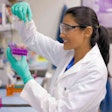Dear LabPulse Member,
Having passed the troubling milestone of 100,000 deaths related to the novel coronavirus, the U.S. is proceeding with plans for reopening with safeguards and hoping for the best. Here in our hometown of San Francisco, LabPulse.com is still under stay-at-home orders, along with other companies. On sunny days and holidays, people are still flooding into city parks and there is also talk about opening more outdoor areas for small shops and restaurants.
The quality of testing and what role it should play during reopening is a top concern in lab medicine during the COVID-19 pandemic. The U.S. Centers for Disease Control and Prevention (CDC) this week issued interim guidelines for antibody testing, outlining its role and providing recommendations for reducing the risk of false positives. While antibody testing can play an important role in understanding the spread of the virus, it should not be used at this time to determine if an individual is immune, the CDC advised.
Organizations of lab medicine professionals have been pushing the U.S. Food and Drug Administration (FDA) to rein in the flood of unvalidated antibody test products introduced by commercial manufacturers. Having previously tightened its policies and citing the importance of transparency, the FDA this week published the names of 28 antibody products that may no longer be distributed on an emergency basis during the pandemic.
It's not just antibody tests that have drawn scrutiny. Questions have also arisen about reverse transcription polymerase chain reaction (RT-PCR) assays for diagnosing infection through detection of coronavirus genetic material. On Wednesday, the FDA announced that it is now offering a reference panel that will help labs evaluate new molecular diagnostics for SARS-CoV-2. According to the agency, the panel will be helpful to commercial and laboratory developers in comparing different tests under the same conditions.
The COVID-19 pandemic has pushed a number of prominent medical organizations -- including the American Society of Clinical Oncology (ASCO) -- to move their meetings from an in-person to virtual format. The ASCO meeting gets underway today, with on-demand and live presentation viewing. ASCO's press program featured a real-world study showing the value of molecular testing in pediatric cancer patients, with better progression-free survival in those who received treatment according to their own individual genetic profile.
Of course, even when targets are known and accepted by experts, that doesn't necessarily mean that patients will get access. A recently published global survey conducted by the International Association for the Study of Lung Cancer (IASLC) found that molecular testing was underused in patients with non-small cell lung cancer. Educational outreach is needed to improve awareness of evidence-based practice, the IASLC advised.



















